September 8 stands as one of history’s most eventful days, witnessing the rise and fall of empires, groundbreaking discoveries, and moments that shaped our modern world across centuries of human achievement.

Politics and Government Events on September 8
1926 – Germany Admitted to the League of Nations
Germany gained membership in the League of Nations, marking its reintegration into the international community after World War I. This diplomatic milestone represented a significant step toward European stabilization and cooperation.
The admission reflected Germany’s gradual rehabilitation on the world stage during the Weimar Republic era. Many hoped this development would strengthen collective security and prevent future conflicts in Europe.
1933 – Ghazi bin Faisal Becomes King of Iraq

Ghazi bin Faisal ascended to the throne of Iraq following his father’s death, inheriting a young kingdom struggling with political instability. The new monarch faced immediate challenges from tribal tensions and growing nationalist movements.
His reign would prove turbulent as Iraq navigated between British influence and Arab independence aspirations. The young king’s nationalist sympathies often put him at odds with British colonial interests in the region.
1945 – Division of Korea Begins
United States troops arrived in southern Korea to establish occupation zones, responding to Soviet forces already positioned in the north. This military deployment initiated the formal partition of the Korean Peninsula.
The temporary administrative division would become permanent, creating two separate Korean states with opposing ideologies. This fateful decision laid the groundwork for decades of conflict and tension on the peninsula.
1974 – Gerald Ford Pardons Richard Nixon
President Gerald Ford signed a controversial pardon absolving Richard Nixon of all potential federal crimes committed during his presidency. The decision sparked intense national debate about justice and presidential accountability.
Ford believed the pardon would help heal the nation and allow America to move beyond the Watergate scandal. Critics argued it established a dangerous precedent of presidential immunity from legal consequences.
1978 – Black Friday Massacre in Tehran
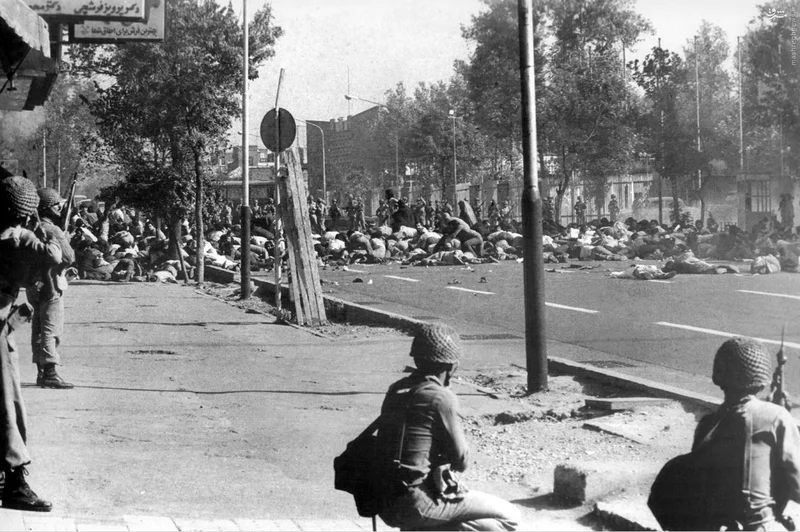
Iranian security forces opened fire on protesters in Tehran’s Jaleh Square, killing 88 demonstrators and marking a turning point in the Iranian Revolution. The brutal crackdown galvanized opposition against the Shah’s regime.
The massacre destroyed any remaining legitimacy of the monarchy and accelerated the revolutionary movement. This tragic event directly contributed to the Shah’s eventual overthrow and the establishment of the Islamic Republic.
2022 – Queen Elizabeth II Dies

Queen Elizabeth II passed away at Balmoral Castle in Scotland after reigning for 70 years, marking the end of the longest reign in British history. Her son Charles immediately became King Charles III upon her death.
The Queen’s death triggered constitutional changes across the Commonwealth realms and initiated a period of national mourning. Her passing represented the end of an era and the beginning of a new chapter for the British monarchy.
Military and Naval History on September 8
1914 – First British Execution for Desertion
Private Thomas Highgate became the first British soldier executed for desertion during World War I, establishing a harsh precedent for military discipline. Military authorities sought to maintain order through severe punishment of those who abandoned their posts.
The execution reflected the military’s determination to prevent widespread desertion as trench warfare conditions deteriorated. This controversial decision sparked debates about military justice that continued throughout the war.
1924 – Honda Point Disaster
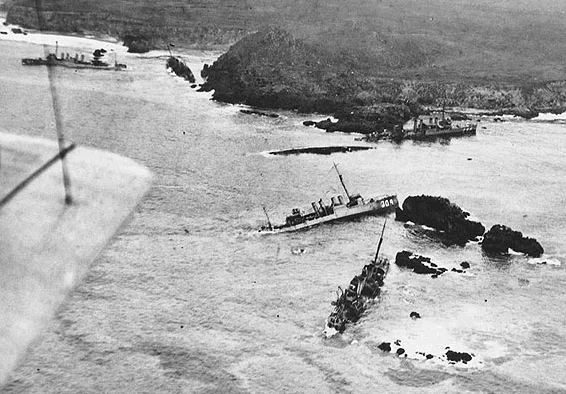
Nine US Navy destroyers ran aground off the California coast in one of the peacetime Navy’s worst disasters. Seven vessels were completely lost, and twenty-three sailors perished in the tragic navigation error.
The disaster exposed serious flaws in naval navigation procedures and communication protocols. The incident led to significant improvements in maritime safety standards and navigation technology for military vessels.
1925 – Spanish Forces Land at Al Hoceima
Spanish forces under Colonel Francisco Franco launched an amphibious assault at Al Hoceima, Morocco, during the Rif War. The operation marked a crucial turning point in Spain’s campaign against Berber resistance fighters.
Franco’s successful landing demonstrated his military capabilities and enhanced his reputation within the Spanish army. This victory contributed to Spain’s eventual triumph over the Rif Republic and Franco’s rise to prominence.
1941 – Siege of Leningrad Begins
German forces initiated the brutal siege of Leningrad, beginning one of World War II’s most devastating and prolonged urban battles. The siege would last 872 days, becoming a symbol of Soviet resistance and suffering.
Over one million civilians would perish during the blockade, primarily from starvation and disease. The siege’s heroic defense became a defining moment in Soviet wartime mythology and Russian national identity.
1943 – Armistice of Cassibile Announced
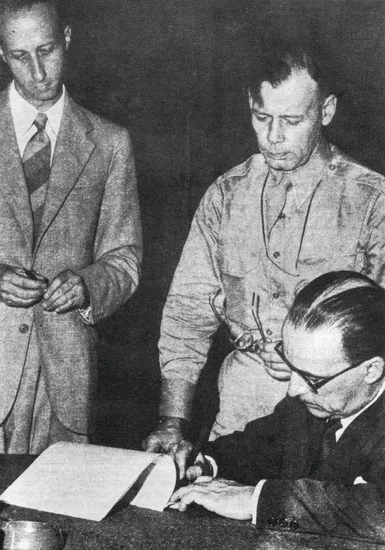
The Armistice of Cassibile was broadcast by radio, officially announcing Italy’s surrender to the Allies during World War II. German forces immediately implemented plans to disarm their former Italian allies across occupied territories.
The announcement created chaos within Italian ranks and sparked fierce German retaliation against Italian forces. This development opened a new phase of the war in Italy, with fierce fighting continuing until 1945.
1944 – First V-2 Rocket Hits London

London suffered its first V-2 rocket attack, marking the beginning of Germany’s final terror weapon campaign against Britain. The supersonic missiles brought unprecedented destruction and psychological warfare to the civilian population.
The V-2 attacks represented Nazi Germany’s last attempt to break British morale through technological superiority. These rocket strikes continued until the war’s end, causing significant casualties and property damage.
Science and Discovery Milestones on September 8
1960 – Marshall Space Flight Center Dedicated
President Dwight D. Eisenhower formally dedicated NASA’s Marshall Space Flight Center in Huntsville, Alabama, establishing a crucial facility for America’s space program. The center would become the primary development site for rocket propulsion systems.
Under Wernher von Braun’s leadership, the facility would design and build the Saturn V rockets that carried astronauts to the moon. The center’s establishment marked America’s serious commitment to competing with Soviet space achievements.
2000 – Space Shuttle Atlantis Launches

NASA launched Space Shuttle Atlantis on mission STS-106 to resupply the International Space Station, continuing construction of humanity’s orbital laboratory. The mission delivered essential supplies and equipment for the station’s expanding capabilities.
The successful mission demonstrated international cooperation in space exploration and advanced construction of the ISS. This collaboration represented a new era of peaceful scientific cooperation between former adversaries.
2004 – Genesis Spacecraft Crashes
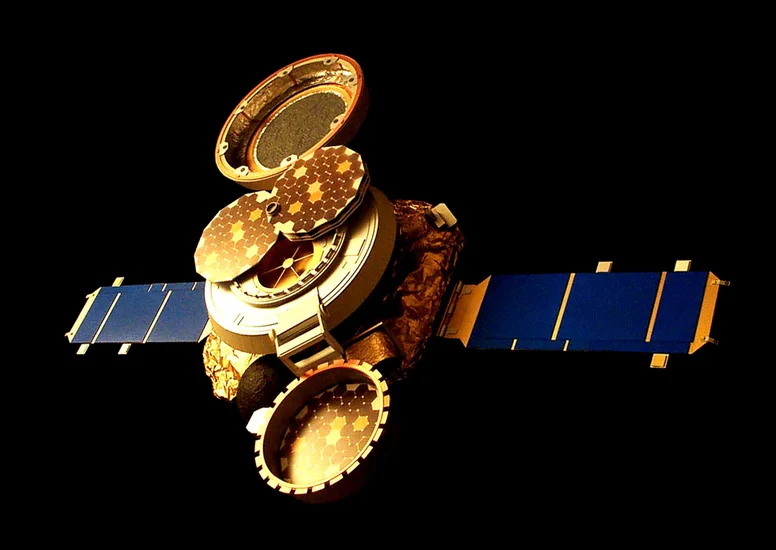
NASA’s Genesis spacecraft crash-landed in the Utah desert when its parachute failed to deploy, threatening the mission’s solar wind samples. Despite the dramatic crash, scientists successfully recovered valuable scientific data from the damaged capsule.
The mission provided unprecedented insights into the composition of the solar wind and early solar system formation. This scientific achievement demonstrated that even failed missions could yield important discoveries.
2016 – OSIRIS-REx Asteroid Mission Launches

NASA launched OSIRIS-REx, its first asteroid sample return mission, targeting asteroid 101955 Bennu for scientific study. The ambitious mission aimed to collect samples from a potentially hazardous asteroid and return them to Earth.
The spacecraft successfully reached Bennu and collected samples, returning to Earth in September 2023. This mission advanced our understanding of asteroid composition and planetary defense strategies.
Cultural and Arts Events on September 8
1966 – Star Trek Premieres
The legendary science fiction television series Star Trek premiered with “The Man Trap,” launching one of entertainment’s most enduring franchises. The show broke new ground in television production and social commentary.
Creator Gene Roddenberry’s vision of a diverse, optimistic future resonated with audiences worldwide. The series spawned multiple sequels, films, and generations of devoted fans who embraced its message of unity and exploration.
1971 – Kennedy Center Opens
The John F. Kennedy Center for the Performing Arts was inaugurated in Washington, D.C., with the premiere of Leonard Bernstein’s Mass. The center established itself as America’s premier venue for performing arts and cultural events.
The opening ceremony featured leading artists and marked a new chapter in American cultural life. The center would become a symbol of artistic excellence and cultural diplomacy for the United States.
1921 – First Miss America Crowned
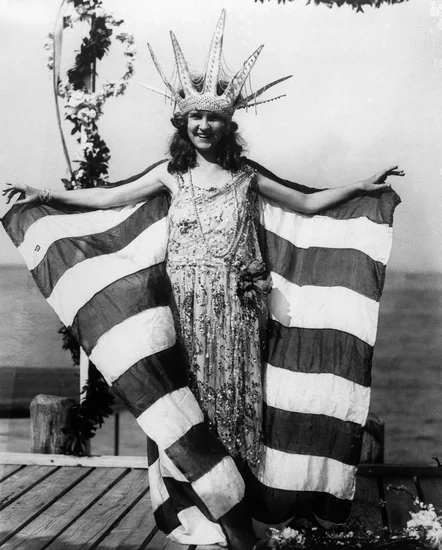
Margaret Gorman, a 16-year-old contestant, won the Atlantic City Pageant’s Golden Mermaid trophy, later recognized as the first Miss America. The competition established a new form of American entertainment and cultural phenomenon.
The pageant would evolve into a national institution, reflecting changing attitudes toward women and beauty standards. This inaugural competition launched decades of controversy and cultural significance in American society.
Religious and Social Events on September 8
1916 – Van Buren Sisters Complete Cross-Country Trip

Augusta and Adeline Van Buren completed their remarkable 60-day, 5,500-mile motorcycle journey across America, proving women’s capability as military dispatch riders. Their achievement challenged traditional gender roles and military policies.
The sisters’ successful trip demonstrated women’s potential contributions to military service during World War I. Their pioneering journey inspired future generations of women to pursue non-traditional careers and challenge societal limitations.
1975 – Leonard Matlovich Appears on Time Magazine
Air Force Technical Sergeant Leonard Matlovich appeared on Time magazine’s cover in uniform with the headline “I Am A Homosexual.” His courageous stand challenged military policies and advanced gay rights activism.
The decorated Vietnam War veteran’s public declaration sparked national debate about military service and sexual orientation. His case became a landmark in the struggle for LGBTQ+ rights and military service equality.
1946 – Bulgarian Monarchy Abolished
A national referendum abolished the monarchy in Bulgaria, establishing a republic and ending centuries of royal rule. The vote reflected post-war political changes and Soviet influence in Eastern Europe.
The monarchy’s abolition marked Bulgaria’s transition toward communist governance under Soviet oversight. This political transformation aligned Bulgaria with other Eastern European nations embracing socialist systems.
Business and Economic Events on September 8
1934 – SS Morro Castle Fire
A devastating fire aboard the passenger liner SS Morro Castle killed 137 people off the New Jersey coast, shocking the maritime industry. The disaster exposed serious safety deficiencies in passenger vessel operations and emergency procedures.
The tragedy led to significant improvements in maritime safety regulations and firefighting equipment standards. The disaster’s investigation revealed corporate negligence and sparked reforms in passenger ship safety protocols.
1952 – CBC Television Debuts
The Canadian Broadcasting Corporation made its first televised broadcast, covering the Boyd Gang’s second escape from prison. This historic transmission marked the beginning of Canadian television broadcasting and national media coverage.
The CBC’s launch established Canada’s public broadcasting system and created a distinctly Canadian media voice. The network would become a cornerstone of Canadian cultural identity and national unity.
1986 – Nicholas Daniloff Indicted

Soviet authorities indicted Nicholas Daniloff, a U.S. News & World Report correspondent, on espionage charges, escalating Cold War tensions. The case became a diplomatic crisis between the United States and Soviet Union.
The incident reflected the dangerous environment journalists faced during the Cold War era. Daniloff’s eventual release helped ease tensions and demonstrated the importance of press freedom in international relations.
Transportation and Infrastructure on September 8
1958 – Last Pines Express Run
The famous Pines Express made its final journey over the Somerset and Dorset Railway line, using the last steam locomotive built by British Railways. The run marked the end of an era in British railway transportation.
The Evening Star locomotive’s final service symbolized Britain’s transition from steam to diesel power. This historic journey represented the conclusion of steam railway’s golden age and the modernization of British transportation.
1988 – Yellowstone Closes Due to Fires
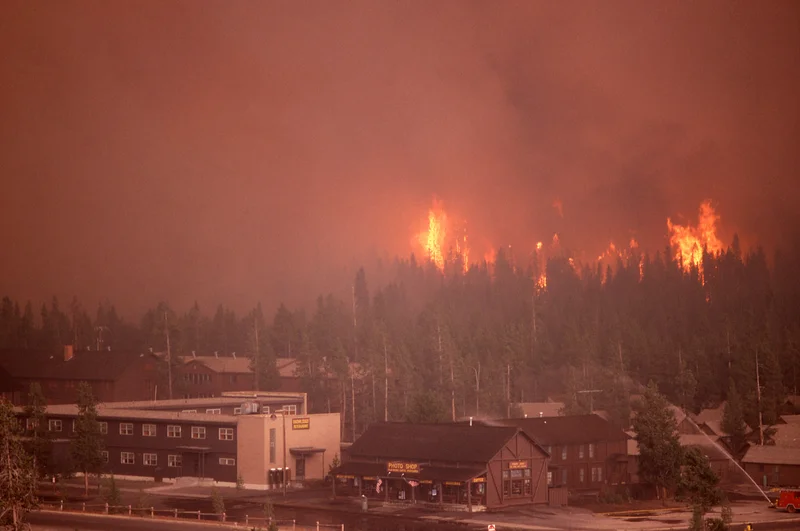
Yellowstone National Park closed for the first time in U.S. history due to extensive wildfires that threatened visitors and wildlife. The unprecedented closure highlighted the park’s vulnerability to natural disasters.
The fires burned over one-third of the park, sparking debates about fire management policies and wilderness preservation. The crisis led to significant changes in national park fire prevention and response strategies.
1989 – Partnair Flight 394 Crashes

Partnair Flight 394 plunged into the North Sea, killing all 55 people aboard after fraudulent aircraft-grade bolts caused the tail to vibrate loose. The disaster exposed serious problems in aviation parts manufacturing and quality control.
The investigation revealed a complex web of counterfeit parts and inadequate safety oversight. This tragedy led to stricter regulations on aircraft parts certification and supply chain security measures.
Sports and Recreation on September 8
2023 – Rugby World Cup Opens in France
The tenth men’s Rugby World Cup commenced in France with an opening ceremony at the Stade de France featuring performances directed by Jean Dujardin. The tournament showcased international rugby’s highest level of competition.
France defeated New Zealand 27-13 in the opening match, demonstrating the host nation’s rugby prowess. The tournament brought together the world’s best rugby teams for several weeks of intense competition.
1909 – Vere St. Leger Goold Dies
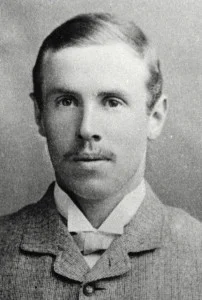
Irish tennis player Vere St. Leger Goold died in prison, ending a remarkable fall from sporting glory to criminal infamy. Goold had been a Wimbledon finalist and prominent figure in early professional tennis.
His death concluded one of sports history’s most dramatic personal tragedies. Goold’s life demonstrated how athletic success could not prevent personal destruction and criminal behavior.
1923 – Ugo Sivocci Dies in Racing Accident
Italian racing driver Ugo Sivocci died in a racing accident at the Monza circuit, becoming another casualty of early motorsport’s dangerous era. Sivocci had been a prominent figure in Alfa Romeo’s racing team and Italian motorsport development.
His death highlighted the extreme dangers faced by pioneering race car drivers. Sivocci’s sacrifice contributed to the eventual development of improved safety measures in motor racing.
Notable Births on September 8
1901 – Hendrik Verwoerd Born
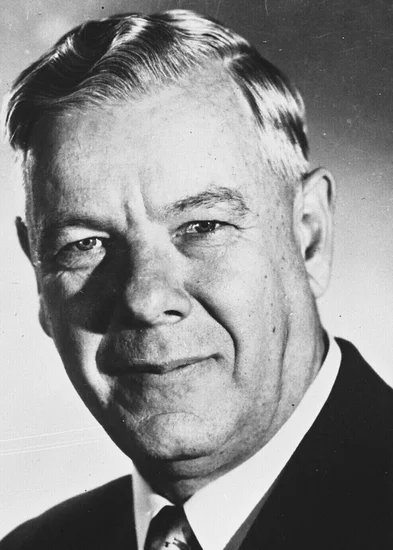
Hendrik Verwoerd was born in the Netherlands, though he would later become South Africa’s Prime Minister and architect of apartheid. His policies would profoundly impact South African society and international relations.
Verwoerd’s systematic implementation of racial segregation earned him the title “architect of apartheid.” His controversial leadership would define South Africa’s political landscape for decades and spark international condemnation.
1922 – Sid Caesar Born

American comedian and actor Sid Caesar was born in New York, destined to become a pioneering figure in television comedy. His innovative approach to sketch comedy would influence generations of performers.
Caesar’s work on “Your Show of Shows” established him as television’s first major comedy star. His collaborations with writers like Mel Brooks and Neil Simon helped define American television comedy’s golden age.
1925 – Peter Sellers Born

English actor and comedian Peter Sellers was born in Portsmouth, later becoming one of cinema’s most versatile performers. His ability to transform into completely different characters made him a unique talent.
Sellers achieved international fame through the Pink Panther films and Dr. Strangelove, showcasing his remarkable range. His comedic genius and tragic personal life made him one of entertainment’s most complex figures.
1932 – Patsy Cline Born

American country singer Patsy Cline was born in Virginia, destined to become one of country music’s most influential voices. Her powerful vocals and emotional delivery would set new standards for female country performers.
Cline’s crossover success helped bridge country and pop music, inspiring countless future artists. Her tragic death in 1963 cut short a brilliant career but secured her legendary status in American music.
1933 – Asha Bhosle Born
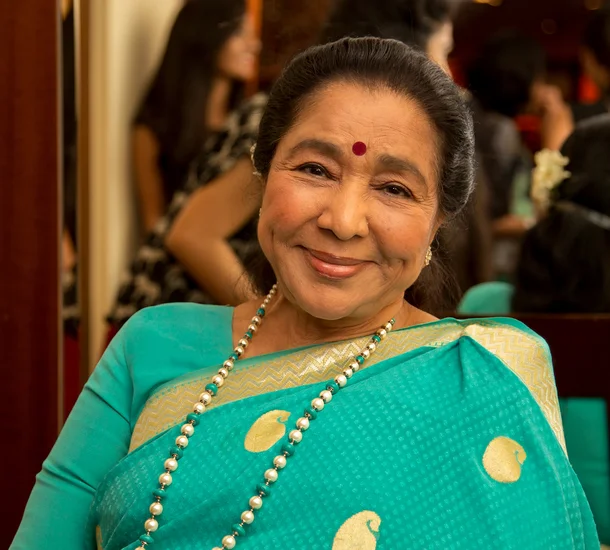
Indian playback singer Asha Bhosle was born in Maharashtra, later becoming one of Bollywood’s most prolific recording artists. Her distinctive voice would grace thousands of Indian film songs across multiple decades.
Bhosle’s versatility allowed her to master various musical styles from classical to modern pop. Her extraordinary career spans over six decades, making her one of the most recorded artists in music history.
1956 – Bernie Sanders Born

American politician Bernie Sanders was born in Brooklyn, New York, later becoming a prominent progressive voice in American politics. His advocacy for social democracy would influence Democratic Party politics for decades.
Sanders’ presidential campaigns brought progressive policies into mainstream political discourse. His consistent message of economic equality and social justice resonated with millions of American voters.
1971 – Martin Freeman Born

English actor Martin Freeman was born in Hampshire, later gaining international recognition for his television and film performances. His natural acting style and comedic timing made him a beloved character actor.
Freeman’s roles in “The Office,” “Sherlock,” and “The Hobbit” trilogy showcased his remarkable range. His ability to portray both comedy and drama established him as one of Britain’s most respected actors.
1971 – Pink Born

American singer-songwriter Pink was born in Pennsylvania, later becoming a multi-platinum recording artist known for her powerful vocals and rebellious image. Her athletic stage performances and honest lyrics resonated with global audiences.
Pink’s career has spanned over two decades, with numerous hit songs and sold-out stadium tours. Her advocacy for LGBTQ+ rights and body positivity has made her an influential cultural figure.
Notable Deaths on September 8
1935 – Carl Weiss Dies

American physician Carl Weiss died after allegedly assassinating Louisiana Senator Huey Long, though questions remain about the exact circumstances. The shooting occurred in the Louisiana State Capitol building during a tense political confrontation.
Weiss was immediately killed by Long’s bodyguards, making investigation difficult and spawning conspiracy theories. The incident eliminated one of America’s most controversial and powerful political figures during the Great Depression.
1949 – Richard Strauss Dies
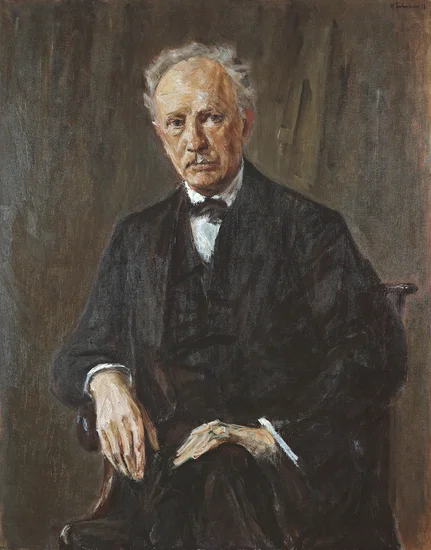
German composer Richard Strauss died in Bavaria, ending one of classical music’s most distinguished careers. His operas and tone poems had defined late Romantic and early modern musical expression.
Strauss’s works like “Also sprach Zarathustra” and “Der Rosenkavalier” remain central to the orchestral and operatic repertoire. His death marked the end of an era in German musical culture and classical composition.
1965 – Dorothy Dandridge Dies

American actress and singer Dorothy Dandridge died in Hollywood, ending a groundbreaking career that challenged racial barriers in entertainment. She was the first African American woman nominated for an Academy Award for Best Actress.
Dandridge’s beauty and talent opened doors for future generations of Black performers in Hollywood. Her tragic death at age 42 highlighted the personal costs of breaking racial barriers in the entertainment industry.
1981 – Hideki Yukawa Dies
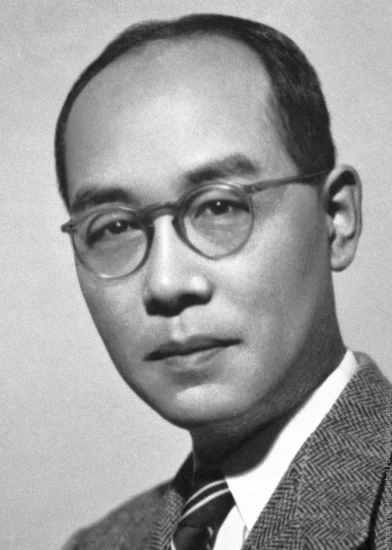
Japanese physicist Hideki Yukawa died in Kyoto, having won the Nobel Prize for his theoretical work on nuclear forces. His prediction of the meson helped explain how atomic nuclei hold together.
Yukawa was the first Japanese Nobel laureate in physics, bringing international recognition to Japanese scientific research. His work laid crucial foundations for understanding subatomic particles and nuclear physics.
2003 – Leni Riefenstahl Dies

German filmmaker Leni Riefenstahl died at age 101, leaving behind a controversial legacy of groundbreaking cinema and Nazi propaganda. Her innovative techniques revolutionized documentary filmmaking while serving totalitarian purposes.
Riefenstahl’s films like “Triumph of the Will” demonstrated cinema’s power to influence public opinion. Her post-war career as a photographer showed her artistic talents beyond the political context that defined her reputation.
2022 – Elizabeth II Dies
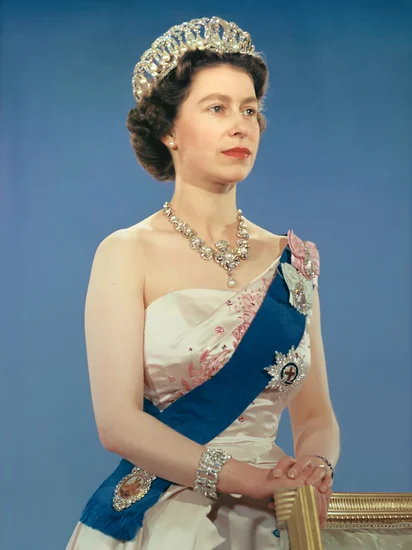
Queen Elizabeth II died at Balmoral Castle in Scotland after reigning for 70 years, making her the longest-serving British monarch. Her death marked the end of an era and triggered constitutional changes across the Commonwealth.
The Queen’s passing was mourned worldwide, reflecting her role as a symbol of stability and continuity. Her death initiated the reign of King Charles III and a new chapter in British and Commonwealth history.
Holidays and Observances on September 8
International Literacy Day
The United Nations designated September 8 as International Literacy Day to raise awareness about literacy as a fundamental human right. This observance highlights the importance of education and reading skills for personal development and social progress.
The day promotes literacy programs worldwide and celebrates achievements in reducing illiteracy rates. Educational organizations and governments use this occasion to launch new initiatives and increase funding for literacy programs.
Independence Day of North Macedonia
North Macedonia celebrates its independence from Yugoslavia on September 8, commemorating the 1991 referendum that established the country’s sovereignty. The day marks the beginning of the nation’s journey toward European integration and democratic governance.
Citizens celebrate with parades, cultural events, and patriotic displays throughout the country. The holiday represents North Macedonia’s commitment to independence, democracy, and its distinct cultural identity in the Balkans.
Nativity of Mary
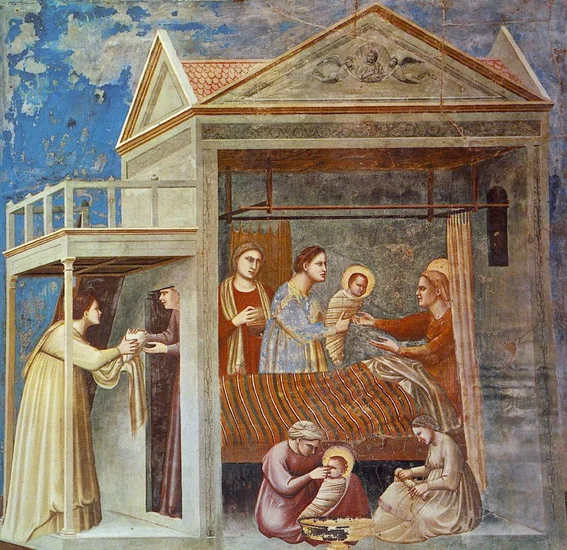
The Roman Catholic Church and other Christian denominations celebrate the Nativity of Mary, honoring the birth of Jesus Christ’s mother. This feast day holds special significance in Catholic theology and Marian devotion.
The celebration includes special masses, processions, and cultural festivals in many Catholic communities worldwide. The feast connects to various local traditions and patronal celebrations, particularly in Mediterranean and Latin American cultures.
